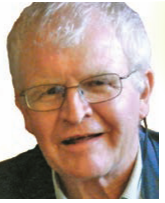How to live with optimism amid our nation’s challenges
Are you discouraged by events in our country and the world? Does consuming the news bring you down and leave you wanting to shut it off? Have you experienced unpleasant incidents that affect your daily morale, such as drivers riding your bumper or giving disparaging gestures? Have you lost friendships or family relationships over politics? Do you feel helpless to do anything about it?
I sure feel that way some of the time. Let’s face it, these are difficult times. In addition to personal life issues, we are witnessing wide-ranging challenges including: declines in basic kindness; political polarization; government dysfunction; climate change; racial divides; health care system failures; economic and social stresses including inflation, housing and child care; the urban–rural divide; and a growing national debt.
And there are forces that magnify these issues: a media environment that rewards outrage over thoughtfulness; social media algorithms that exploit our worst instincts; and conflict entrepreneurs who benefit financially and politically by pitting us against each other.
Although I am worried about many of these issues, I find myself focused on political polarization, as I volunteer with a national citizens movement that envisions respectful embrace of political disagreements.
The goal is not to change people’s views of issues, but to change their views of each other. Attendees at the recent Braver Angels national conference in Gettysburg, Pa., were asked, “Why are you here?” and responses included:
• “We need to trust each other again, and trust begins with communication and relationship.”
• “For personal inspiration and practical ideas to rebuild unity in our divided and rancorous democratic republic.”
• “I’m here to dig deeper into my own biases and judgements.”
• “To build relationships with people with different experiences and perspectives than mine.”
• “To leave the word better than I found it.”
• “I am deeply concerned about the country I love. My grandkids deserve to inherit a better country.”
• “I am here because, if we don’t change how our politics is done, we’ll see ourselves in another civil war. Except this time, it won’t look like Gettysburg — it’ll look like Rwanda.”
Having worked 20 years ago in Rwanda, the last one really caught my attention. I led a U.S. Agency for International Development-funded project to strengthen the parliament in that nation so scarred by the 1994 Hutu genocide against the Tutsis. I remember feeling grateful that we didn’t have political tribalism in our country.
More recently, I worked in Guinea during the Ebola epidemic. I recall thinking Americans, unlike many West Africans, would have trust in our public health system in a medical emergency.
I was obviously wrong on both counts. It is easy to get sucked into doom and gloom these days, but I am reminded of the powerful Henry Matisse quote: “There are always flowers for those who want to see them.”
Then there is Gandhi’s insightful wisdom:
“If you want to change the world, start with yourself.” That last phrase is the hard part.
It is human nature to want others to change, not ourselves. But there are practical steps we can each take to change for the better, leading ourself (and others, too!) to make a difference.
Start with cultivating gratitude and hopefulness, as well as finding other people who share similar concerns. Engage in personal reflection, writing down your most important values and what gives you meaning. Identify your why. What concerns you most, and how much time can you can give to the cause? Even an hour a week can make a difference.
With respect to addressing declining kindness, your contribution might not require extra time in your busy day. Increased self-awareness to be sure you don’t overreact to a difficult situation (and add to the problem) can have a positive impact. Being a positive role model also includes making a little extra effort to say “thank you” to those you encounter in daily life: retail workers, co-workers, etc.
Of course, the challenges are immense, and there are no guarantees. But it is so much better to step up in the spirit of this Thomas Friedman quote: “Pessimists are usually right and optimists are usually wrong, but all the great changes have been accomplished by optimists.”
We each have an extraordinary opportunity to make a difference in people’s lives, including our own. Don’t underestimate your impact!
Douglass P. Teschner, founder of Growing Leadership LLC, can be reached at dteschner@Growing-LeadershipLLC.com.